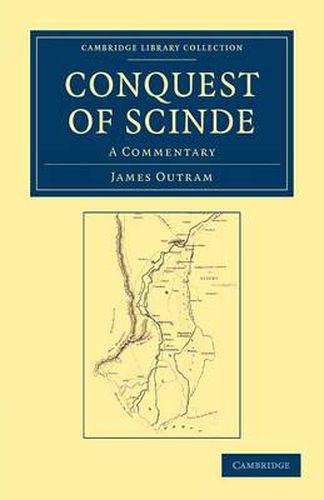Readings Newsletter
Become a Readings Member to make your shopping experience even easier.
Sign in or sign up for free!
You’re not far away from qualifying for FREE standard shipping within Australia
You’ve qualified for FREE standard shipping within Australia
The cart is loading…






This work by Sir James Outram (1803-63), subtitled A Commentary and originally published in two parts in 1846, is an attempt by the author to vindicate his reputation which, he believes, was sullied by Sir William Napier’s book The Conquest of Scinde (1845; also reissued in this series), in which he is represented as devoid alike of military and diplomatic skill. (William Napier was the brother of Sir Charles Napier, the British Commander-in-Chief in India, and his account is not unbiased.) In Part 1, Outram declares his intention to expose these misrepresentations and to vindicate a reputation which for a quarter of a century he had ‘maintained unimpeached’. He claims to corroborate his version of events using personal correspondence, describing in detail and in the first person the political and diplomatic intrigues and the military actions which led to the conquest of the Province of Sindh by the British.
$9.00 standard shipping within Australia
FREE standard shipping within Australia for orders over $100.00
Express & International shipping calculated at checkout
This work by Sir James Outram (1803-63), subtitled A Commentary and originally published in two parts in 1846, is an attempt by the author to vindicate his reputation which, he believes, was sullied by Sir William Napier’s book The Conquest of Scinde (1845; also reissued in this series), in which he is represented as devoid alike of military and diplomatic skill. (William Napier was the brother of Sir Charles Napier, the British Commander-in-Chief in India, and his account is not unbiased.) In Part 1, Outram declares his intention to expose these misrepresentations and to vindicate a reputation which for a quarter of a century he had ‘maintained unimpeached’. He claims to corroborate his version of events using personal correspondence, describing in detail and in the first person the political and diplomatic intrigues and the military actions which led to the conquest of the Province of Sindh by the British.